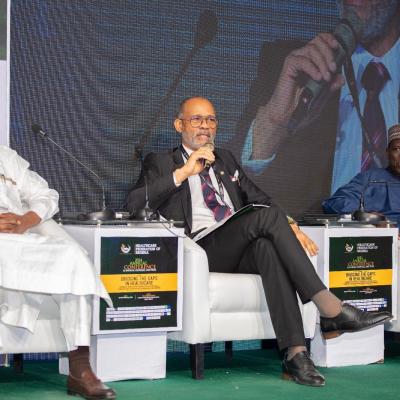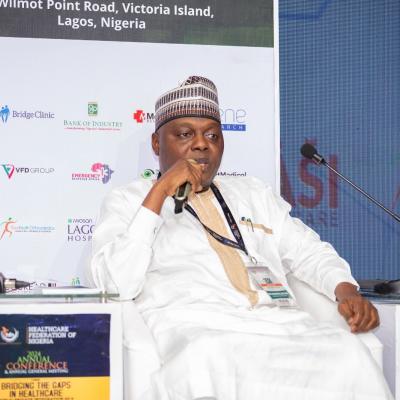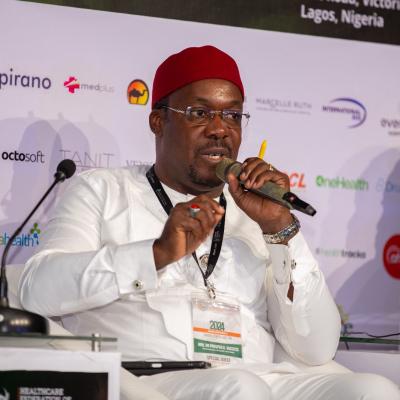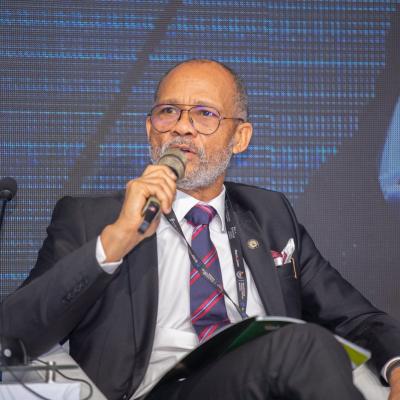He stated that drugs of addiction, such as methamphetamine, tramadol, diazepam, morphine, pemoline, flunitrazepam as well as pentazocine, cocaine and heroin, which are among the drugs smuggled across the African continent from Europe, Asia, Latin America, United States of America and Canada, have been finding their way into Nigeria and also finding their way out to other countries from Nigeria.
The PCN registrar, who presented a paper on the topic “Trans Human, International Migration and National Security: The PCN Perspective”, noted that for a council in charge of drug distribution, effective tracking of the movement of these listed substances poses a huge challenge because the council can only track what it sees.
“Effective regulation of the normal distribution chain is enough to challenge, but adding the second illicit, informal and highly dangerous distribution channel is a daunting challenge,” he said.
Mohammed stated further that the discovery of empty vials of injectable narcotics, as well as hypodermic syringes and needles, when a camp of the dreaded Boko Haram was dislodged, shows the kind of security challenge facing the nation, adding that it is double tragedy for the masses when terrorist organizations use dangerous addiction drugs, which is often the case in nearly all such operations. People under the influence of narcotics and psychotropic substances can be very dangerous, he said.
Mohammed also said that the PCN as a civil organization can only apply professional disciplinary measures to pharmacists, enforce all regulations to ensure that only registered and licensed pharmaceutical premises are used as medium of drug distribution, as well as approach law enforcement agencies and the courts to prosecute offenders – a situation which he sad can be really frustrating.
Nigeria, the PCN boss stated, is nearly one million square kilometers of landmass with an estimated population of 180 million, noting that this population is serviced by a PCN with less than a thousand personnel and 50 vehicles nationwide.
“It, therefore, is really a tough task for us but even at that we are undaunted and are forging ahead”, he said.
Mohammed averred that the PCN believes that to tackle the issue of trans human, international migration and national security, all agencies involved with Pharmacy and drug distribution regulation, law enforcement, security intelligence, and immigration need to imbibe the spirit of inter-agency collaboration and synergy, backed by deliberate government policies and acts of parliament.
This, he said, will help ensure a unified approach to tackling the security challenges of drugs and substance abuse which recently has been heightened by trans-human and international migration.
The PCN registrar posited that Pharmacy and drug distribution regulation has a major role to play in national security and development, but noted that fighting pharmaceutical crimes need intelligence operations security, operations planning retreat/exit strategies, in case of adverse events during enforcement.
Mohammed stressed that all hands must be on deck to ensure that national security is enhanced by ensuring, among other things, that trans-human and international migration is rid of some of its baggage, such as substances and drug abuse, as well as the proliferation of small arms and light weapons.
Nigeria has graduated from a transit country for illicit addiction drugs to a manufacturing hub, and addressing this new challenge and its attendant growing security impacts on the nation will require more proactive measures and better collaboration of all relevant government agencies, Pharm. N.A.E. Mohammed, registrar, Pharmacists Council of Nigeria (PCN), has said.
Speaking recently in Abuja to participants of the Executive Intelligence Management Course (EIMC) 12 of the Institute of Security Studies, Abuja, Mohammed disclosed that the recent discovery of methamphetamine laboratories in some parts of Nigeria is a proof that the country has indeed become a center for the production of addictive drugs.
He stated that drugs of addiction, such as methamphetamine, tramadol, diazepam, morphine, pemoline, flunitrazepam as well as pentazocine, cocaine and heroin, which are among the drugs smuggled across the African continent from Europe, Asia, Latin America, United States of America and Canada, have been finding their way into Nigeria and also finding their way out to other countries from Nigeria.
The PCN registrar, who presented a paper on the topic “Trans Human, International Migration and National Security: The PCN Perspective”, noted that for a council in charge of drug distribution, effective tracking of the movement of these listed substances poses a huge challenge because the council can only track what it sees.
“Effective regulation of the normal distribution chain is enough to challenge, but adding the second illicit, informal and highly dangerous distribution channel is a daunting challenge,” he said.
Mohammed stated further that the discovery of empty vials of injectable narcotics, as well as hypodermic syringes and needles, when a camp of the dreaded Boko Haram was dislodged, shows the kind of security challenge facing the nation, adding that it is double tragedy for the masses when terrorist organizations use dangerous addiction drugs, which is often the case in nearly all such operations. People under the influence of narcotics and psychotropic substances can be very dangerous, he said.
Mohammed also said that the PCN as a civil organization can only apply professional disciplinary measures to pharmacists, enforce all regulations to ensure that only registered and licensed pharmaceutical premises are used as medium of drug distribution, as well as approach law enforcement agencies and the courts to prosecute offenders – a situation which he sad can be really frustrating.
Nigeria, the PCN boss stated, is nearly one million square kilometers of landmass with an estimated population of 180 million, noting that this population is serviced by a PCN with less than a thousand personnel and 50 vehicles nationwide.
“It, therefore, is really a tough task for us but even at that we are undaunted and are forging ahead”, he said.
Mohammed averred that the PCN believes that to tackle the issue of trans human, international migration and national security, all agencies involved with Pharmacy and drug distribution regulation, law enforcement, security intelligence, and immigration need to imbibe the spirit of inter-agency collaboration and synergy, backed by deliberate government policies and acts of parliament.
This, he said, will help ensure a unified approach to tackling the security challenges of drugs and substance abuse which recently has been heightened by trans-human and international migration.
The PCN registrar posited that Pharmacy and drug distribution regulation has a major role to play in national security and development, but noted that fighting pharmaceutical crimes need intelligence operations security, operations planning retreat/exit strategies, in case of adverse events during enforcement.
Mohammed stressed that all hands must be on deck to ensure that national security is enhanced by ensuring, among other things, that trans-human and international migration is rid of some of its baggage, such as substances and drug abuse, as well as the proliferation of small arms and light weapons.
Source: Pharmanews

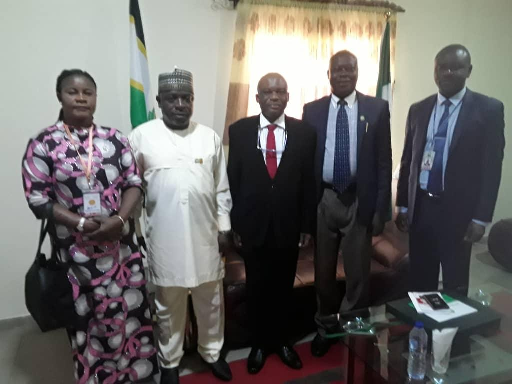 Nigeria has graduated from a transit country for illicit addiction drugs to a manufacturing hub, and addressing this new challenge and its attendant growing security impacts on the nation will require more proactive measures and better collaboration of all relevant government agencies, Pharm. N.A.E. Mohammed, registrar, Pharmacists Council of Nigeria (PCN), has said.
Nigeria has graduated from a transit country for illicit addiction drugs to a manufacturing hub, and addressing this new challenge and its attendant growing security impacts on the nation will require more proactive measures and better collaboration of all relevant government agencies, Pharm. N.A.E. Mohammed, registrar, Pharmacists Council of Nigeria (PCN), has said.